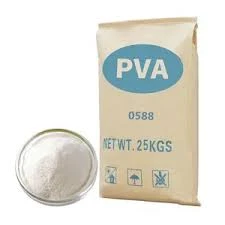Understanding the Viscosity of HPMC 200000 An Essential Polymer
Hydroxypropyl Methylcellulose (HPMC) is a cellulose ether that has gained widespread attention in various industries due to its unique properties and versatile applications. Among its variants, HPMC 200000, characterized by its high molecular weight, stands out for its viscosity-related attributes. This article delves into the significance of the viscosity of HPMC 200000, how it is measured, and its implications across different fields.
What is HPMC 200000?
HPMC 200000 refers to a specific grade of Hydroxypropyl Methylcellulose with a high viscosity range. Typically, HPMC is produced by chemically modifying cellulose to enhance its solubility and functionality. The 200000 in its name signifies its high molecular weight, which directly correlates to its ability to form viscous solutions when dissolved in water.
Importance of Viscosity
Viscosity is a crucial property of polymers, particularly for those used in formulations such as paints, adhesives, pharmaceuticals, and food products. For HPMC 200000, its viscosity determines its performance and suitability for various applications. The high viscosity of HPMC means it can provide excellent thickening and stabilizing effects, making it an ideal choice for thickening agents in different formulations.
Measuring Viscosity
The viscosity of HPMC 200000 is typically measured using a viscometer, which assesses the flow of a substance under specific conditions. The most common approach is to measure the viscosity of a solution of HPMC at various concentrations and temperatures. The viscosity can be influenced by several factors, including the degree of substitution of the cellulose, the molecular weight, the concentration of the polymer, and the temperature of the solution. Understanding these parameters is essential for formulators to optimize the performance of HPMC in their products.
hpmc 200000 viscosity

Applications of HPMC 200000
1. Pharmaceutical Industry HPMC 200000 is widely used in the formulation of controlled-release drug delivery systems. Due to its high viscosity, it can form gels that regulate the release rate of the active pharmaceutical ingredient, enhancing the therapeutic efficacy of various medications.
2. Food Industry In the food sector, HPMC acts as a thickening and stabilizing agent in sauces, dressings, and dairy products. Its ability to improve texture and mouthfeel while providing a gluten-free alternative makes it invaluable in modern food formulations.
3. Construction Industry HPMC 200000 is often used in the formulation of dry-mix mortars and adhesives. Its high viscosity contributes to the workability and stability of these products, ensuring better adhesion properties and enhanced performance.
4. Cosmetics and Personal Care Products In cosmetics, HPMC serves as an emulsifier, thickener, and film-former. Its ability to enhance the texture and stability of creams, lotions, and gels is crucial for delivering quality consumer products.
Conclusion
The viscosity of HPMC 200000 is a defining characteristic that significantly impacts its functionality in various applications. Understanding its properties allows manufacturers to harness its potential for improving product performance across different industries. As demand for multifunctional and sustainable materials continues to rise, HPMC 200000 will likely remain a popular choice for formulators looking to create effective, high-quality products. Its role in enhancing viscosity is not just a technical detail; it is a critical factor that supports innovation and efficacy in formulations across a wide range of applications.






